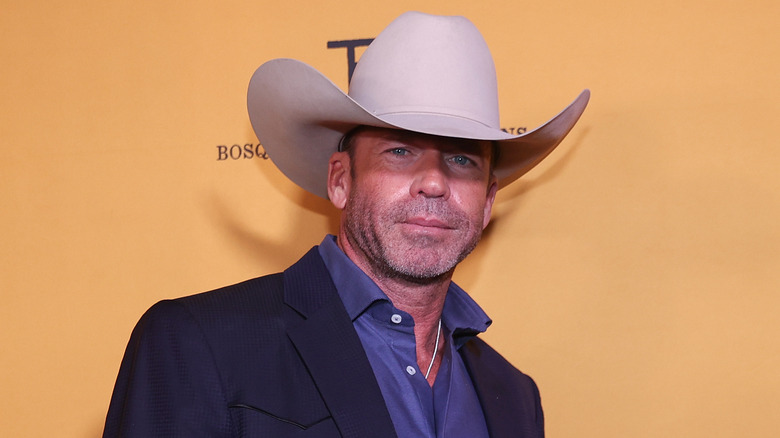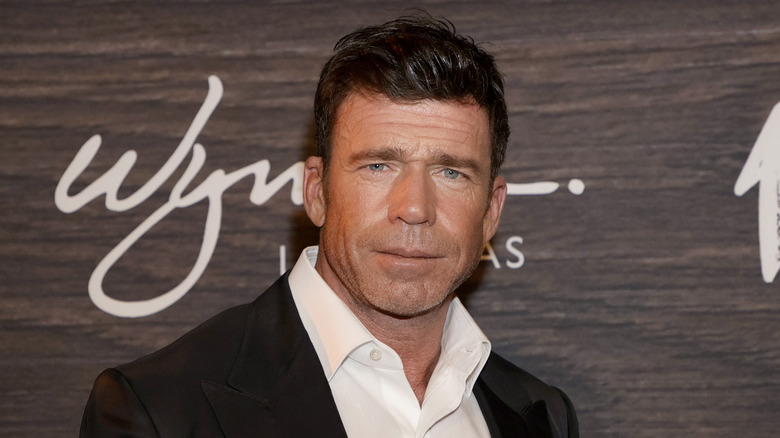How Taylor Sheridan's Real-Life Cowboy Experience Helped Him Create Yellowstone
No one can say for sure exactly why some TV shows become massive hits while others fade into obscurity. Whatever the cause may be, it certainly seems safe to say that the shows that make up the TV empire of Taylor Sheridan — starting with the crown jewel of "Yellowstone" — have a certain amount of authenticity that makes them appealing to viewers. In Sheridan's case, his real-life experience as a cowboy certainly lends credence to that concept, and it's that experience (not exactly commonplace among people working in TV) that helped him create such a unique and resonant drama series.
Cowboy details alone don't make a hit show, but Sheridan has spoken repeatedly about how his time spent on actual working ranches informed and inspired the creation of "Yellowstone." And members of the cast even have to go through "cowboy camp" to make their performances authentic. For fans of the hit series, that probably comes as no surprise, since it's full of the kind of granular detail that you often don't get in TV stories about cattle ranchers, if you see them on screen at all.
Sheridan's life on a ranch played a key part in creating Yellowstone
Taylor Sheridan is possibly the hottest writer in television now, with an ever-expanding "Yellowstone" franchise churning out ratings gold. And he reportedly still lives on a ranch in Texas. And it's not just any ranch — in early 2022, it was reported that he'd spent an undisclosed sum on the legendary 6666 Ranch in West Texas. And his connection with real-life ranching goes back much further than that.
Sheridan grew up on a ranch purchased by his parents in 1978, when he was just eight years old. The ranch was known as Bosque Ranch, which now serves as the namesake of his production company. "I'm deeply influenced by where I grew up and how I grew up," he told Texas Highways in a 2020 interview. And when the family sold the ranch in the 1990s when Sheridan was in college, that loss informed the notorious efforts of the Dutton family to hang onto their own ranch. "When you write, it's always of an autobiographical nature," Sheridan said. "Our family ranch has informed 'Yellowstone' in many ways, but losing it was the biggest one."
Thinking about Sheridan's backstory, it's easy to see it come through when watching "Yellowstone." "Yellowstone," After all, Sheridan's works present an informed, authentic, and personal approach to stories within the genre that are hard to find.

